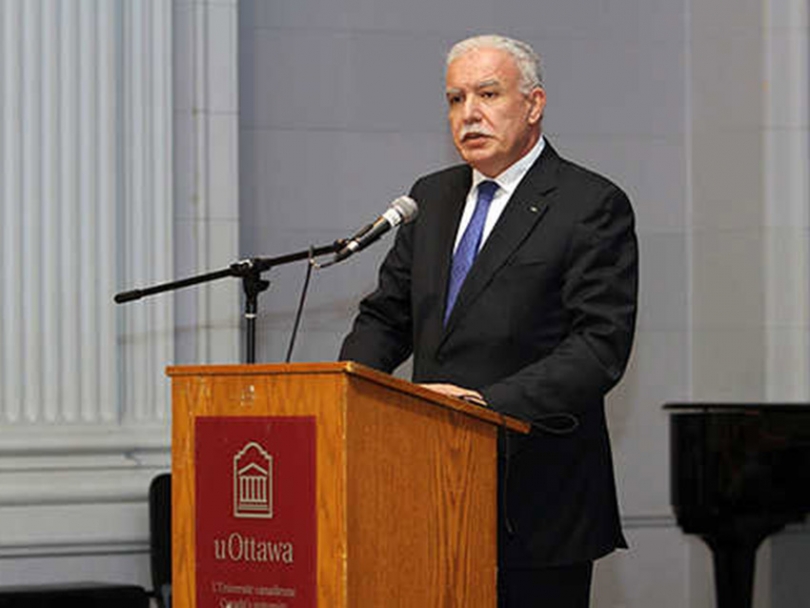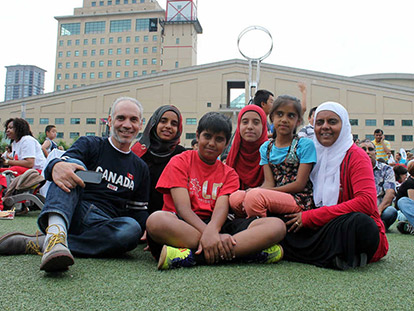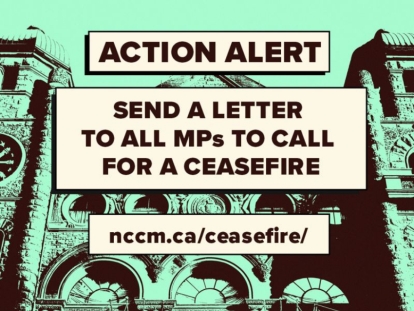 Palestinian Authority Foreign Affairs Minister Riad Malki at the University of Ottawa
Palestinian Authority Foreign Affairs Minister Riad Malki at the University of Ottawa
Oct
Neutral third party necessary for peace: Palestinian Authority Foreign Affairs Minister
Written by MHIn a groundbreaking event, on Sept. 19th Palestinian Authority Foreign Affairs Minister Riad Malki delivered a public speech at the University of Ottawa's Huguette Labelle Hall.
In his speech entitled “Palestine: Current Challenges and Prospects for Peace” Minister Malki highlighted the lessons learned in the past 20 years since the Oslo Agreement was initiated, and how this interim peace offer has affected the Palestinian people and the overall political environment of this volatile region. Minister Malki expressed his sadness over the conflict that has affected the area for decades, stating how disheartening it is that such violence is being witnessed in a land where “people of every religion greet each other with ”˜Peace'”.
Mr. Malki, who holds a PhD in Civil Engineering and a former professor at the Birzeit University in Ramallah, focused his speech on the “Lessons Learned” by the Palestinian people pertaining to peace negotiations, breaking down the negotiating tactics that he believes must be adopted and implemented for successful peace talks. Mr. Malki explained that the most prevalent lessons learned for the Palestinians have been to demand the presence of a neutral third party in all peace talks and closed room negotiations.
“There are two reasons for this” Mr. Malki explained, as this is necessary when “bridging proposals and also for the truth to be expressed to the international community in cases where negotiations fall apart.” Mr. Malki did not hesitate to point out that in the most recent round of negotiations, Israel “prevented” the United States posing as the neutral third party, to enter the negotiating room. “Out of seven rounds of talks, the United States was allowed to one lunch,” the minister said laughing.
Minister Malki also highlighted the importance of understanding the distinction between the issues which the Palestinians and Israelis hold as important. For the Israelis, this has always been a question of attaining and maintaining national security, while for the Palestinians the driving factor is international recognition of their territorial borders. The fact that Israel is only interested in speaking about security has been hindering peace negotiations for decades now, he said.
Mr. Malki also expressed frustration over the issue of an ongoing interim freedom agreement since the original Oslo agreement 20 years ago.
“Some Israelis are calling for Oslo 2,” the minister stated, which he said the Israelis saw as an interim period leading to permanency of this ongoing situation. “After 20 years, the Palestinians needed to react where the international community had failed to react”
As part of his visit, the minister also met with Canadian Foreign Affairs minister John Baird, who called Mr. Malki “a good friend to Canada”. Relations between the Palestinian territories and Canada have been rocky since the latter was part of only a handful of countries to have voted against upgrading the Palestinians' membership status at the United Nations last year. During the meeting, Mr. Baird pledged $5 million to help spur economic and social development in the Palestinian territories, which is in addition to the $25 million Canada committed to the Palestinians earlier this year.
This article was produced exclusively for Muslim Link and should not be copied without prior permission from the site. For permission, please write to info@muslimlink.ca.














